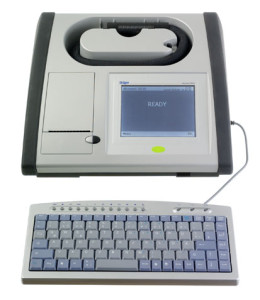If you are arrested for DUI and fail a breathalyzer or breath test (are over the legal limit of .08% BAC), that’s not the end of the road. It is still possible to beat the charge and be found not guilty at a Massachusetts DUI trial.
If other evidence doesn’t suggest you were drunk, we can argue that the breathalyzer result must be wrong. For example:
- Your driving was under control. You weren’t wildly swerving across the road when the officer pulled you over.
- You were polite and answered the officer’s questions, and weren’t belligerent or difficult in any way.
- You weren’t fumbling or falling all over the place when you exited the car.
Often there is video evidence from the police cruiser dashcam, or the booking video at the police station. Very often, you look fine and normal on camera, which contradicts what the officer said and what the breathalyzer result was.
It is reasonable to argue that there is a clear disconnect between the higher BAC number on a breathalyzer failure and your behavior and appearance. This disconnect can cast strong doubt on the value and validity of the BAC number in establishing that a person is legally impaired or intoxicated.
There is still a real opportunity to fight the charges and win in court, which we have successfully done in many cases over the years.
Massachusetts breathalyzer science is shakey and has been deemed unreliable statewide before. Thousands of cases have been tossed, thanks to poor oversight and maintenance of breathalyzers by the Office of Alcohol Testing. More problems are being found with dangerous and ineffective devices. And everyone knows that the Massachusetts crime labs have been plagued with scandal after scandal about false results and rouge lab chemists.
So juries are prepared to understand that this hard scientific breath test evidence is anything but reliable.
Here are some explanations we can provide to a jury why you supposedly failed the breath test, but were not legally impaired, and, therefore, should be found not guilty.
1) Problems with Breath to Blood Conversion
Breath test machines don’t actually test your blood alcohol level (BAC). They test how much alcohol is in your breath or lungs, or Breath Alcohol Level (BrAC). Breath test machines take the amount of alcohol they find in your breath and multiply it by 2100, to convert it to blood alcohol level. Different people have different conversion ratios, and there is no way to know what your conversion ratio is.
This conversion ratio is critically important since the standard for impairment is .08 calculated based on Blood Alcohol. To convert between the two, a simple mathematical formula is used, based on a 2100 “partition ratio”, or conversion ratio. This formula assumes that for every unit of alcohol that is in your breath, there are 2100 units in your bloodstream.
Normal people have a partition ratio ranging from 1500 to 2800. A 200 difference in a person’s partition or alcohol conversion ratio will equal a .01 BAC difference, so the normal range of a person’s biological function can explain a swing of .03 BAC, which is significant when .08 BAC is the legal limit.
2) High Body Temperature
The Draeger Alcotest 9510 (which replaced the 7100 in 2011) machine used in Massachusetts assumes that a person’s breath temperature is 34 degrees Celsius.
But that is not a scientific certainty. Some people have body temperatures that are higher, and some people could have a fever at the time of the test. This can result in someone’s true alcohol level being reported higher.
Massachusetts could have bought machines that test body temperature, but they declined to use that option. Alabama bought the machines that do have that feature.
3) Mouth Alcohol
The most common reason for mouth alcohol is if someone burps or belches and brings up some air from their stomach. Air from the stomach has a great deal more alcohol in it than deep lung air, and can throw off the results dramatically.
Breath test operators are supposed to be trained to observe someone for 15 minutes in Massachusetts to account for this factor. But they can make mistakes, and miss this important fact.
In addition to the potential problem of someone burping, there are a number of mouth contaminants that can significantly impact the results of the breath tests. Mouth contaminants may include:
- cough syrups and mouthwashes
- smokeless tobacco
- blood in the mouth from gum disease/gingivitis, a dental visit, flossing, or mouth or facial injury
- asthma inhalers
- dentures and denture adhesives
- breath sprays and certain mints and lozenges
Some of these can be noticed in the observation period, but many can’t. If you wear dentures, the impact of extra mouth alcohol caught in your teeth can’t be avoided on the test.
4) Gastro Esophageal Reflux Disorder (G.E.R.D.) or Acid Reflux
More commonly known as Acid Reflux, or heartburn, this condition affects between 25 and 45% of the adult population.
A documented medical case of acid reflux can help explain a high BAC number that is clearly out of sync with a person’s observable behavior.
5) Air Pressure, or Breathing Patterns & Characteristics
Your breathing patterns may affect the breath alcohol reading. Holding your breath can significantly increase the readout number. Conversely, hyperventilating or taking deep breaths can reduce your breath alcohol concentration.
Breathing patterns are involuntary and other factors and can significantly increase the margin of error in these tests.
6) Time of Driving
Even assuming that the breath test number is accurate, all that it tells you is what the level is when you are blowing into the machine back at the police station. It doesn’t tell you what your blood alcohol level was at the exact time you were driving. Maybe you had a couple of quick drinks, and you were fine, and would have been home safely while below the limit if you hadn’t been pulled over.
It can take up to a couple of hours to absorb alcohol after it has been consumed, depending on a number of factors including someone’s individual physiology, how much food they’ve had to eat and how recently they’ve eaten.
It is entirely possible that you could be under the limit while are driving, and be over the limit when they are testing at the police station. The arrest and booking process can easily be an hour or more after you stopped driving.
If you’ve been arrested on a drunk driving charge in Massachusetts, and you failed the breath test, your case can still be won!
Please call me today for a consultation, and I’ll let you know what makes sense for your specific circumstances and how we can fight the charges in court.
Sincerely,
Attorney Russell Matson
(781) 380-7730


